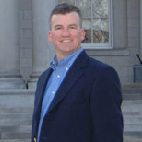By Bob Sheppard
CA-CP CFO and vice president of the Corporate Program,
Clean Air-Cool Planet
This is the last full day of summer, and with the primaries behind us, all eyes are turning towards the November mid-term elections. Folks who have spent the last 15 months focused on building support for comprehensive climate and energy policy are still coming to grips with the failure of the US Senate to take up legislation this summer.
We just co-sponsored a forum in Concord, NH on energy, the environment and elections that drew more than 80 people representing local efforts to reduce carbon in scores of small towns, as well as state agencies, funders, business people and activists. The event focused on a recent survey commissioned by Clean Air-Cool Planet and Conservation New Hampshire of likely voters in the state.
reduce carbon in scores of small towns, as well as state agencies, funders, business people and activists. The event focused on a recent survey commissioned by Clean Air-Cool Planet and Conservation New Hampshire of likely voters in the state.
A poll this spring, in anticipation of a Senate vote, gauged business support for cap-and-trade legislation, revenue recycling and an economy-wide solution and found that, regardless of party affiliation, most  respondents see this as a key issue. A second round of questions conducted by the University of New Hampshire Survey Center in July, demonstrated a marked difference between Democrats, Independents and Republicans in terms of support for comprehensive climate and energy legislation, changes in national energy policy, and support for candidates who make environmental protection a priority.
respondents see this as a key issue. A second round of questions conducted by the University of New Hampshire Survey Center in July, demonstrated a marked difference between Democrats, Independents and Republicans in terms of support for comprehensive climate and energy legislation, changes in national energy policy, and support for candidates who make environmental protection a priority.
The important take away for candidates in November is that over half of those surveyed were unable to tell whether elected officials from either party were making that commitment to environmental protection, so a clear, concise message directed towards independent voters could make the difference in a close race this fall.
The Concord forum included a panel featuring two political insiders and a consultant to leading businesses. Michael Dennehy is a political and government relations advisor to corporations and national organizations. He is perhaps best known for his role as a senior advisor to both of Senator John McCain’s Presidential bids. His biggest victory came as New England Political Director & NH Campaign Manager, orchestrating the 2000 upset victory in New Hampshire’s First-in-the-Nation Primary. Michael believes that by reducing carbon, America could end the flow of dollars overseas to nations that wish us ill while creating new jobs here at home. Though the peer-reviewed science is hard to ignore, by committing to national climate and energy policy, Dennehy says, we strengthen our economy and reduce waste, which helps improve our quality of life, even if the predictions about global warming are wrong.
to both of Senator John McCain’s Presidential bids. His biggest victory came as New England Political Director & NH Campaign Manager, orchestrating the 2000 upset victory in New Hampshire’s First-in-the-Nation Primary. Michael believes that by reducing carbon, America could end the flow of dollars overseas to nations that wish us ill while creating new jobs here at home. Though the peer-reviewed science is hard to ignore, by committing to national climate and energy policy, Dennehy says, we strengthen our economy and reduce waste, which helps improve our quality of life, even if the predictions about global warming are wrong.
People in the audience who are running for office got savvy advice from Former Portsmouth Mayor Steve Marchand, the principle of The Marchand  Group, a public affairs and strategic communications firm. While consumers are still feeling the effects of the recession, he believes that successful candidates will be the ones who can connect the dots in terms that their constituents can wrap their arms around – dealing with climate change by investing in efficiency and renewables, because new technology translates into job creation and more discretionary income for voters.
Group, a public affairs and strategic communications firm. While consumers are still feeling the effects of the recession, he believes that successful candidates will be the ones who can connect the dots in terms that their constituents can wrap their arms around – dealing with climate change by investing in efficiency and renewables, because new technology translates into job creation and more discretionary income for voters.
The final presenter was Ken Colburn, a consultant to businesses including Stonyfield Farm. He reminded the audience about the true costs of reliance on fossil fuels: American military personnel lost protecting convoys bringing fuel to troops in Iraq and Afghanistan, and the ongoing clean up of the BP oil spill in the Gulf of Mexico. He used as a metaphor for the need for policy parents helping their children understand the importance of eating their vegetables while they crave sweet desserts. A long time advocate of the Regional Greenhouse Gas Initiative, he thinks the nine-state compact, which reduces emissions from power plants, returns money to states for energy efficiency, coupled with a renewable portfolio standard that increases over time, can serve as a model for federal legislation.
policy parents helping their children understand the importance of eating their vegetables while they crave sweet desserts. A long time advocate of the Regional Greenhouse Gas Initiative, he thinks the nine-state compact, which reduces emissions from power plants, returns money to states for energy efficiency, coupled with a renewable portfolio standard that increases over time, can serve as a model for federal legislation.
All three speakers agreed its time to get the politics out of the climate debate and identify areas for collaboration between state and local government, the business community and higher education if we are going to honestly deal with global warming. Generations of Granite Stators may be counting on us, and, as another NH Primary season looms, the rest of the nation, if not the world, are watching.
